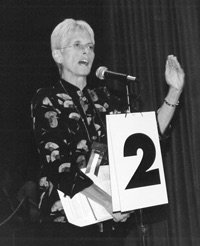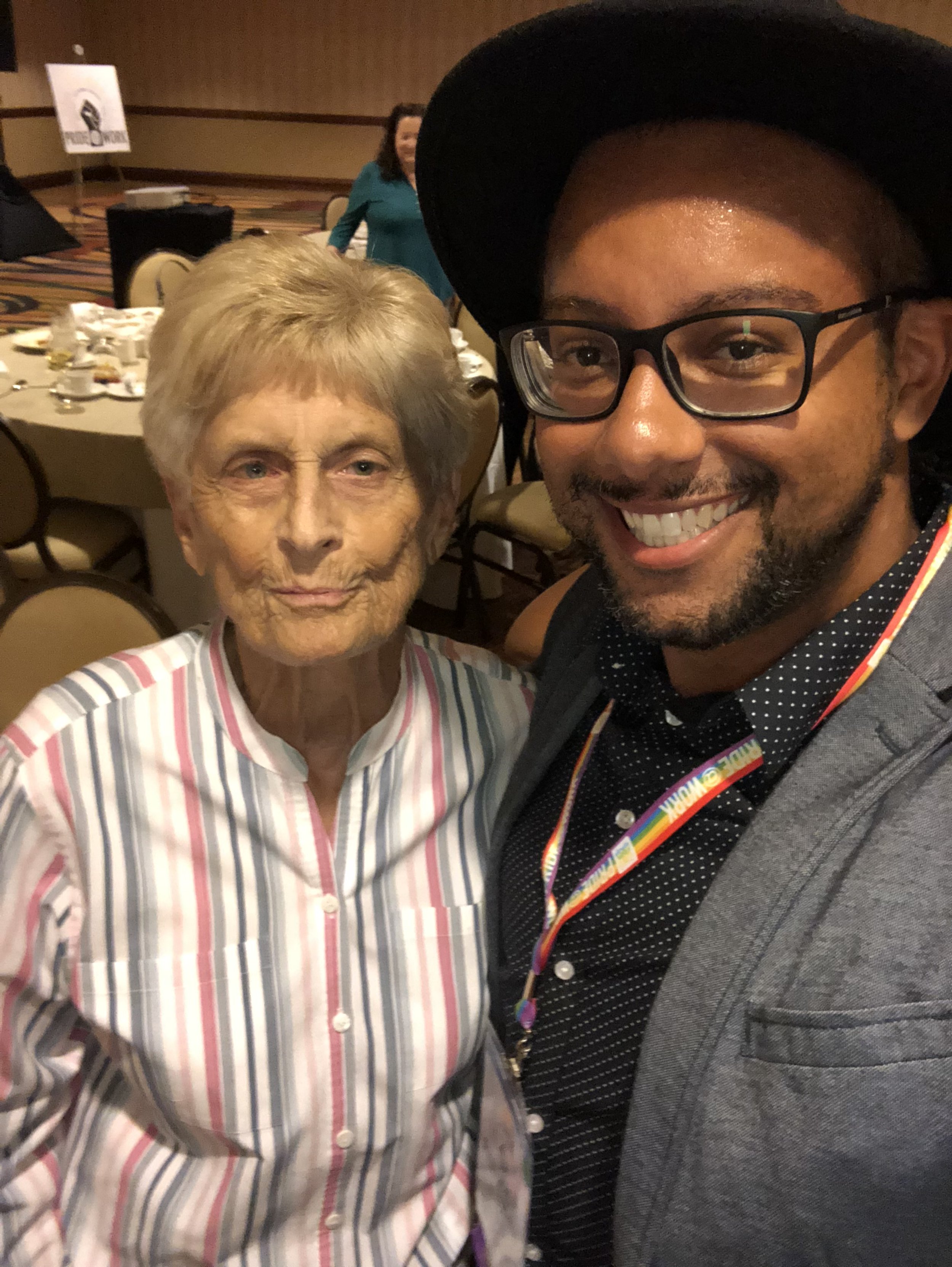In honor of Pride At Work founder Nancy Wohlforth
Siblings, with heavy hearts we share the news that Nancy Wohlforth, founder of Pride At Work, passed away on December 31, 2024.
Nancy’s organizing and leadership in the labor, LGBTQIA+, and civil rights movements are tremendous and we look forward to sharing her story in depth once her obituary is ready and plans for a spring celebration of life are finalized.
A few highlights from Nancy’s lifetime fighting the good fight:
Nancy Wohlforth became the first openly LGBTQIA+ officer of an international union in 2003 when she was elected as Secretary-Treasurer of OPEIU.
In 2005 she became the first openly LGBTQIA+ person elected to the AFL-CIO Executive Council.
Nancy and Cal Noyce served as the first Co-Presidents of Pride At Work and in 1997 secured the AFL-CIO’s recognition of us as an official constituency group.
As a teenager Nancy spent a summer as a Freedom Rider in the Civil Rights movement, part of her lifelong commitment to racial justice.
Nancy was known for reminding her Pride At Work siblings,
“If you don’t have a seat at the table, bring a sturdy folding chair!”
Thank you for everything, Nancy!

















Below is an excerpt about Nancy from the book Out in the Union: A Labor History of Queer America. Author Miriam Frank is another key founder of Pride At Work and a dear friend of Nancy who captured her spirit well. Thanks to Miriam for the important book and permission to share:
Feminists who had been avid strike supporters continued to meet and eventually formed a caucus, which they called "A Growing Concern" because, said Wohlforth, "our growing concern was that Local 3 wasn't organizing." The caucus members wanted the union's organizing program to prioritize women's issues and gay rights. They put up a booth for the Gay Freedom Day rally in June 1981. "We made it look like a video display terminal, and we talked about repetitive stress and eyestrain," Wohlforth recalled. "Some members made themselves up with papier-mache eyeballs popping out of their heads. Our leaflets said right up front that gay people need unions."
The caucus ran its first slate in 1983, and Wohlforth was elected to the Executive Board. Three years later, the caucus took more seats, and Wohlforth won the local's top paid position, senior business representative. The old guard did not like Wohlforth's tough politics or her frank queerness and spread a rumor that she was sexually involved with two of her close allies, both straight women. In truth, her love life was not that racy. However, new organizing opportunities were coming up, and Wohlforth's reputation as an openly lesbian union official became an advantage.
The union's first queer campaigns ran at nonprofit service organizations. A committee from the Episcopal Community Service selected Local 3 for its organizing drive because the committee's members "wanted to talk about gay issues in their shop, and my activism made a difference," said Wohlforth.
The union won the election; contract negotiations moved swiftly; and Local 3 served the shop attentively. A lesbian who was one of the shop leaders at Episcopal got a new job a year later at the St. Vincent de Paul Society, a Catholic charity. She spoke up for Local 3 when the union approached its eighty employees, and her endorsement clinched the drive.
Local 3 did not go after gay bosses until the late 1980s. Organizers had been talking with employees at the Information Store, a group of fifty young gay men who researched, brokered, and distributed information to link databases with corporate clients. This was a small firm that could not afford first-rate union busters, so when management ordered workers to attend a captive audience meeting, Wohlforth heard about it the next day: "They showed one of those old union-busting films from the 1970s, with the brass of the AFL-CIO, the old bureaucracy. Our guys just laughed. They said to the bosses, `Do you know that there's a lesbian in charge of Local 3? Have you even heard of the Office and Professional Employees?' We won that shop."
A few years later, Local 3 ran another gay drive at Hospitality House, a self-help program for street youth in the Tenderloin district. Again, there was a captive meeting, this time at a gay bar. "The bosses told the staff that they didn't need a union, that unions are all straight white males." Local 3 retaliated with dinner at a Chinese restaurant and set a much lighter tone. "Our leaflet had information about the Lesbian/Gay Labor Alliance and a picture of me, a co-chair of the group. The workers asked about the gay-labor connection, and we just talked about what unions do," said Wohlforth. "And then they voted yes."
Frank, Miriam. Out in the Union: A Labor History of Queer America

